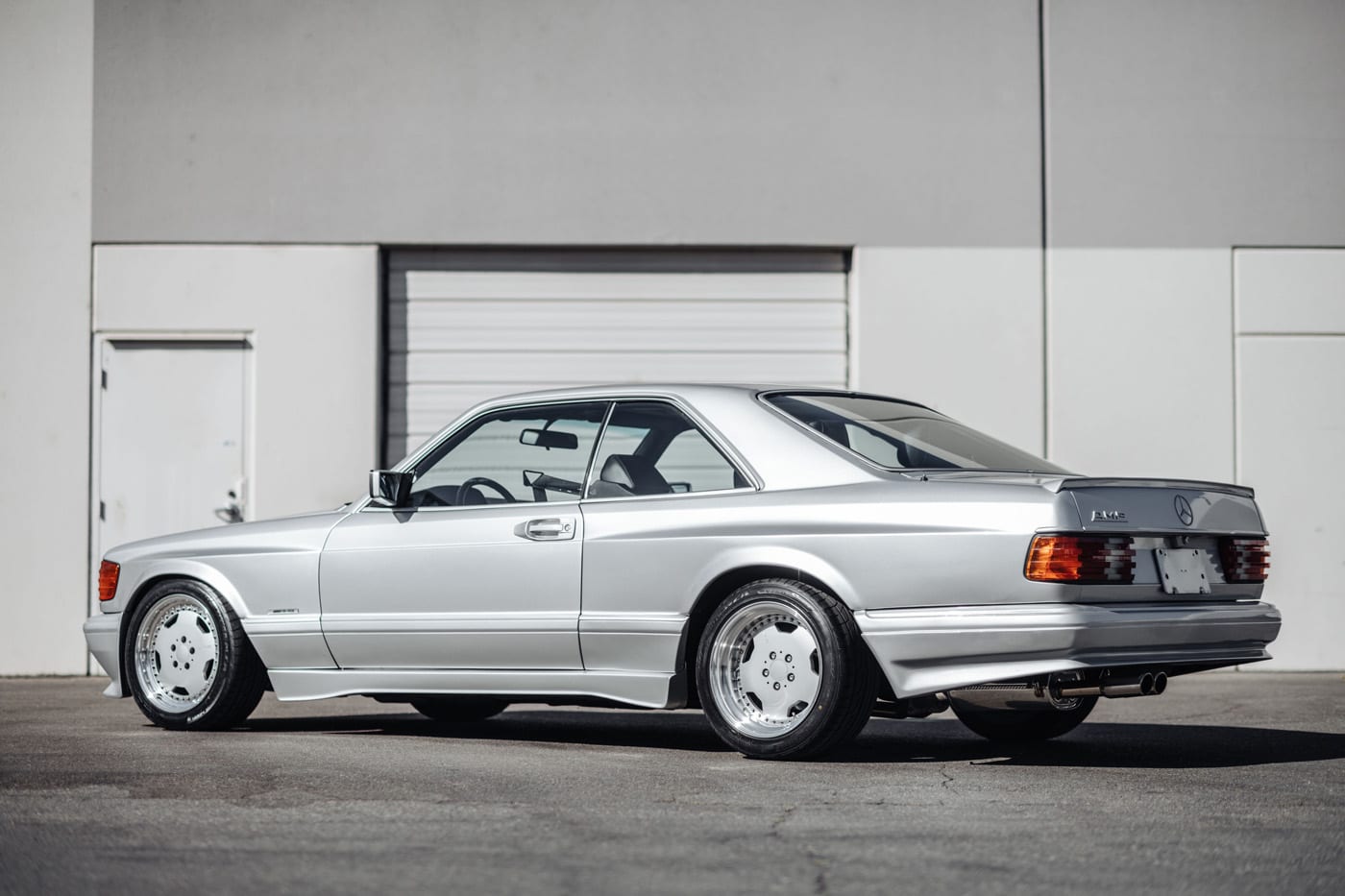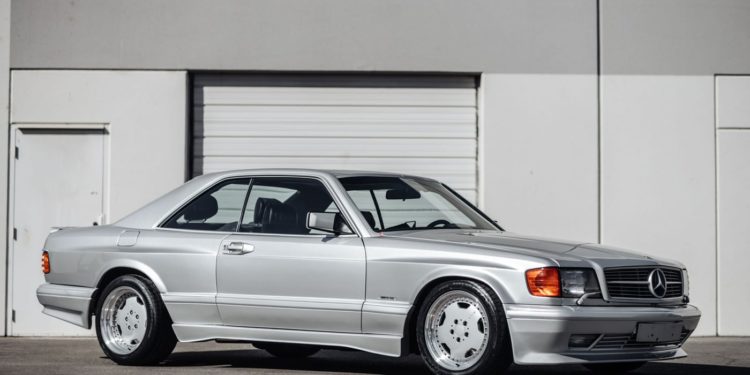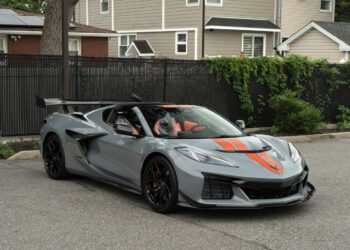Presented by RM Sotheby’s – From their 150-employee operation in Affalterbach, the burgeoning engine builder and tuning firm AMG had, by 1989, already released some of the most powerful, outrageous, no-holds-barred creations to grace the Autobahn. Since 1967, the firm had achieved marked success by following a simple corporate ethos: If your pockets were deep enough, they would build it for you. At a time when Mercedes-Benz still poured unrivaled sums into the research and development of their products, yet the marque’s identity remained “comfortable luxury,” AMG regularly committed acts of heresy; “shoehorning” became AMG’s particular claim to fame, and displacement proved the company’s preferred commodity. The car offered here is quite in line with this approach.
This Japanese-market 1989 560 SEC AMG 6.0 Wide-Body is clad in Pearl Grey Metallic over Anthracite leather and was delivered new to AMG Japan in September 1988. The car’s original powertrain was replaced by AMG in-period, and the completed car was delivered back to its first owner shortly thereafter. AMG’s work consisted of taking a stock 5.5-liter M117 V-8 and boring it out to 6.0-liters before equipping it with a set of “hotter” camshafts housed within of pair of proprietary 16-valve, three-piece, sand-cast cylinder heads. Surmounted by a modified throttle body, freer-breathing exhaust, and ported intake manifold, the final product produces a reported 385 horsepower and provides twice the torque at half the engine speed of the stock 560 configuration. The cost of the 6.0-liter (32-valve) and Wide-Body packages from AMG—tacked onto the sticker price of a brand-new, flagship SEC Coupe—made this car one of the most expensive roadgoing marvels of the period. These prohibitively high costs assured that only the most well-heeled enthusiasts could showcase the pinnacle of the tuning firm’s catalog.

Both the engine number and transmission number are the correct AMG sequences indicating period modification. AMG “Gen II” body numbers are found on the front fenders and front bumper with correct West German production information, and the valve cover stampings correctly identify the 6.0-liter displacement (as opposed to the available, lesser 5.6-liter), sequence number, and appropriate employee ID code. Further stampings on the heads, exhaust manifolds, and throttle body are similar testaments to this coupe’s significant modifications. Further, AMG four-piston front brake calipers are present along with the exclusive and correct “AMG by Bilstein” shocks. AMG-touched cars from this era may only have a few of these attributes present; this example evidences them throughout. One newer addition is the replacement stainless steel exhaust; it runs rear past the limited-slip differential, finding its terminus in a dual-outlet muffler rendered in the style of the correct AMG unit.
AMG’s hand assembled widebody fenders and “Gen II” ground effects change the visage of Bruno Sacco’s pillarless coupe design from graceful to vengeful. Plastic badges bearing a modern AMG logo appear to be more recent additions to each front fender, but this coupe’s menacing stance is otherwise correct. A proper set of staggered, three-piece 17-inch wheels are presently shod in fresh Bridgestone Potenza tires.
The Anthracite interior is a rather restrained affair, so far as AMG builds of the period are concerned. Nonetheless, an attractive suite of extended burl veneers is enriched by the presence of a small-gauge AMG by Momo M38 steering wheel fronting a white-faced AMG instrument cluster. The rear seats are in presentable condition; quilted buffalo leather door inserts and black carpeting complete the handsome appeal of this coupe’s cockpit.
This 1989 560 SEC AMG 6.0 Wide-Body Coupe is now offered for sale with just 90,400 kilometers (~56,200 miles) indicated, and is accompanied by a Japanese manual, service map booklet, later AMG document pouch, jack, and spare tire. It will be offered at RM Sotheby’s Arizona sale, taking place 22 January in Scottsdale, Arizona.








